Six Black Colleges and Universities Are Included in the New 373 Best Colleges Guide Published by the Princeton Review
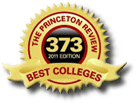 The Princeton Review recently published its annual 373 Best Colleges guide. Among the 373 colleges chosen as America’s best are six historically black colleges and universities. They are Fisk University, Hampton University, Howard University, Spelman College, Tuskegee University, and Xavier University of Louisiana. The Princeton Review recently published its annual 373 Best Colleges guide. Among the 373 colleges chosen as America’s best are six historically black colleges and universities. They are Fisk University, Hampton University, Howard University, Spelman College, Tuskegee University, and Xavier University of Louisiana.
Each year the Princeton Review surveys students at the colleges it features and ranks the schools in a host of categories including best and worst dorms, food, campuses, etc. The six black colleges and universities among the 373 colleges in the Princeton Review guide did not fare well in these rankings. Fisk University ranked first among the 373 colleges and universities as having the least happy students. Fisk also ranked high on the list of colleges with the worst food.
Tuskegee University was rated as having the worst dormitories among all 373 colleges and universities.
Hampton University ranked second on the list of schools with the worst food and fourth in the category “Dorms Like Dungeons.”
Xavier University was on the list for worst dorms and least beautiful campus.
Howard University made the list of schools where professors were least accessible. But on a good note, Howard also was rated as having one of the best college newspapers and best college radio stations.
College of Staten Island to Combat Hate Crimes in the Local Community
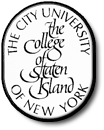 In recent years, a series of violent and brutal hate crimes have occurred on Staten Island, a borough of New York City. Now, a consortium of elected officials, community leaders, educators, neighborhood associations, businesses, and citizens groups has mounted a campaign to increase racial tolerance on Staten Island. The effort is entitled, “I Am Staten Island.” In recent years, a series of violent and brutal hate crimes have occurred on Staten Island, a borough of New York City. Now, a consortium of elected officials, community leaders, educators, neighborhood associations, businesses, and citizens groups has mounted a campaign to increase racial tolerance on Staten Island. The effort is entitled, “I Am Staten Island.”
The College of Staten Island, a division of the City University of New York, is an active participant in the campaign. The college will conduct diversity training seminars and hold workshops on racial tolerance throughout the local community.

UNIVERSITY OF TORONTO SCARBOROUGH

Tenure Stream Appointment,
Child/Adolescent Clinical Psychology
The Department of Psychology, University of Toronto Scarborough, invites applications for a tenure stream appointment in the field of Child/Adolescent Clinical Psychology (#1000667). The appointment will be at the rank of Assistant Professor, to begin July 1, 2011.
For detailed information about the search and application process, we encourage you to visit the University of Toronto Faculty Careers Page at http://www.jobs.utoronto.ca/faculty.htm and submit your application online. Please refer to the job posting #1000667.
The closing date for applications is October 31, 2010.
For more information about the Department of Psychology, University of Toronto Scarborough please visit our home page at http://www.utsc.utoronto.ca/~psych/
The University of Toronto Scarborough is strongly committed to diversity within its community and especially welcomes applications from visible minority group members, women, Aboriginal persons, persons with disabilities, members of sexual minority groups, and others who may contribute to the further diversification of ideas.
All qualified candidates are encouraged to apply; however, Canadians and permanent residents will be given priority.

Tufts University Makes Solid Progress in Black First-Year Enrollments
 There are 92 black freshmen at Tufts University in Medford, Massachusetts, this fall. This is an increase of nearly 59 percent from a year ago when there were 58 black freshmen. This year blacks make up 7 percent of the entering class. A year ago blacks were only 4.4 percent of incoming students. While black applicants and acceptances were up slightly from a year ago, the major improvement came in black student yield. Last year just over 20 percent of black students accepted Tufts’ offer of admission. This year black student yield increased to nearly 30 percent. There are 92 black freshmen at Tufts University in Medford, Massachusetts, this fall. This is an increase of nearly 59 percent from a year ago when there were 58 black freshmen. This year blacks make up 7 percent of the entering class. A year ago blacks were only 4.4 percent of incoming students. While black applicants and acceptances were up slightly from a year ago, the major improvement came in black student yield. Last year just over 20 percent of black students accepted Tufts’ offer of admission. This year black student yield increased to nearly 30 percent.
Lee Coffin, dean of undergraduate admissions at Tufts, tells JBHE, “Our success reflects an aggressive and comprehensive recruitment plan that included increased outreach to urban high schools and access agencies.” He also points to an on-campus recruitment program held last fall and a summer bridge program for minority students interested in the university’s School of Engineering. Tufts admissions officials also made the school’s first recruitment visit to Africa.
New Nursing School at Historically Black Charles Drew University of Medicine and Science Is in a Precarious Financial Position
 Late last month the Mervyn M. Dymally School of Nursing at the Charles Drew University of Medicine and Science in Los Angeles enrolled its first 40 students. The school is housed in a new $43 million facility that includes classrooms that resemble a nurses station, an operating room, an intensive care unit, and a birthing room. There are three patient wards, each with four beds that have mannequin patients. The mannequins can be programmed by instructors to talk, have a heart attack, and even die if given improper care. Late last month the Mervyn M. Dymally School of Nursing at the Charles Drew University of Medicine and Science in Los Angeles enrolled its first 40 students. The school is housed in a new $43 million facility that includes classrooms that resemble a nurses station, an operating room, an intensive care unit, and a birthing room. There are three patient wards, each with four beds that have mannequin patients. The mannequins can be programmed by instructors to talk, have a heart attack, and even die if given improper care.
The promise of the new nursing school is dimmed by the fact that the university will run out of funds to pay for the new building in six months. The interim president of the institution is seeking funds from the government, foundations, and other institutions in an effort to keep the school open.
Recent Books That May Be of Interest to African-American Scholars
 The JBHE Weekly Bulletin regularly publishes a list of new books that may be of interest to our readers. Here are the latest selections. The JBHE Weekly Bulletin regularly publishes a list of new books that may be of interest to our readers. Here are the latest selections.
• A Home Elsewhere: Reading African American Classics in the Age of Obama by Robert B. Stepto (Harvard University Press)
• Acting White: The Ironic Legacy of Desegregation by Stuart Black (Yale University Press)
• African Americans in Global Affairs: Contemporary Perspectives edited by Michael L. Clemons (Northeastern University Press)
• Conjuring Crisis: Racism and Civil Rights in a Southern Military City by George Baca (Rutgers University Press)
• DanceHall: From Slave Ship to Ghetto by Sonjah Stanley Niaah (University of Ottawa Press)
• Delia’s Tears: Race, Science, and Photography in Nineteenth-Century America by Molly Rogers (Yale University Press)
• Different Drummers: Rhythm and Race in the Americas by Martin Munro (University of California Press)
• Embodying Black Experience: Stillness, Critical Memory and the Black Body by Harvey Young (University of Michigan Press)
• From Douglass to Duvalier: U.S. African Americans, Haiti, and Pan-Americanism, 1870-1964 by Millery Polyne (University Press of Florida)
• In Brown’s Wake: Legacies of America’s Educational Landmark by Martha Minow (Oxford University Press)
• Katrina’s Imprint: Race and Vulnerability in America by Keith Wailoo et al. (Rutgers University Press)
• Nobody Turn Me Around: A People’s History of the 1963 March on Washington by Charles Euchner (Beacon Press)
• Phillis Wheatley and the Romantics by John C. Shields (University of Tennessee Press)
• The Great Task Remaining Before Us: Reconstruction as America’s Continuing Civil War edited by Paul A. Cimbala and Randall M. Miller (Fordham University Press)
• The Harlem Renaissance Revisited: Politics, Arts, and Letters edited by Jeffrey O.G. Ogbar (Johns Hopkins University Press)
• The Hidden Curriculum: Life Lessons You Won’t Learn in the Classroom by Rubin Cockrell (Yorkshire Publishing)
• The Substance of Hope: Barack Obama and the Paradox of Progress by William Jelani Cobb (Walker & Company)
• Yes, I Am, Who I Am: A New Philosophy of Black Identity by Michael Eric Owens (Yorkshire Publishing)
• Zimbabwe’s New Diaspora: Displacement and the Cultural Politics of Survival edited by JoAnn McGregor and Ranka Primorac (Berghahn Books)
In Memoriam
Wilhelmina Jakes Street (1929-2010)
 Wilhelmina Jakes Street, who as a student at Florida A&M University was one of the initiators of the 1956 Tallahassee bus boycott, has died at the age of 80. Wilhelmina Jakes Street, who as a student at Florida A&M University was one of the initiators of the 1956 Tallahassee bus boycott, has died at the age of 80.
A native of Hardeeville, South Carolina, Street enrolled in Florida A&M to major in education. In 1956 she and her college friend Carrie Patterson were arrested for failing to move to the back of a city bus. This act of defiance prompted a citywide boycott of bus lines by African Americans.
After graduating from Florida A&M, Street embarked on a 33-year teaching career.
Wisdom Franchot Coleman Jr. (1944-2010)
 Wisdom Coleman Jr., associate dean of admissions at the University of Tennessee College of Dentistry, died recently of complications from diabetes. He was 66 years old. Wisdom Coleman Jr., associate dean of admissions at the University of Tennessee College of Dentistry, died recently of complications from diabetes. He was 66 years old.
After graduating from the dental school at Howard University, Dr. Coleman opened a practice in South Memphis. In 1972 he was one of the first black faculty members at the University of Tennessee College of Dentistry.
In 2002 he gave up his private practice to join the University of Tennessee administration on a full-time basis.

EMERSON COLLEGE

Faculty Appointments for the 2011-12 Academic Year
Emerson College seeks full-time faculty members for the following positions. All appointments are for the 2011-12 academic year beginning September 1, 2011. Please visit our Emerson College faculty employment page to view the complete ads and application instructions: http://www2.emerson.edu/hr/employment.cfm
- Journalist-in-Residence
- Multimedia Journalist
- Department Chair and Full Professor
Department of Communication Sciences and Disorders
Emerson College values campus multiculturalism as demonstrated by the diversity of its faculty, staff, student body, and constantly evolving curriculum. The successful candidate must have the ability to work effectively with faculty, students, and staff from diverse backgrounds. Emerson College is an Equal Opportunity Employer that encourages diversity in its workplace.

Honors and Awards
 • Irene Owens, dean of the School of Library and Information Science at North Carolina Central University in Durham, received the 2010 Award for Excellence in Librarianship from the Black Caucus of the American Library Association. The award is sponsored by the library supply company, Demco Inc. • Irene Owens, dean of the School of Library and Information Science at North Carolina Central University in Durham, received the 2010 Award for Excellence in Librarianship from the Black Caucus of the American Library Association. The award is sponsored by the library supply company, Demco Inc.
Dr. Owens is a graduate of Barber-Scotia College in Concord, North Carolina. She earned a master’s degree in library science from the University of Maryland, a master’s degree in religious studies from Howard University, and a Ph.D. from the University of North Carolina at Chapel Hill.
 • Delores Aldridge, Grace Towns Hamilton Professor of Sociology and African-American Studies at Emory University, received the 2010 Cox-Johnson-Frazier Award from the American Sociological Association. • Delores Aldridge, Grace Towns Hamilton Professor of Sociology and African-American Studies at Emory University, received the 2010 Cox-Johnson-Frazier Award from the American Sociological Association.
Dr. Aldridge earned bachelor’s and master’s degrees at Atlanta University and her Ph.D. at Purdue University.
 • Marcellus Barksdale, a professor of African-American studies, was named Morehouse College Faculty Member of the Year for 2010-2011. The award recognizes outstanding teaching and is given out based on student evaluations and faculty peer reviews. • Marcellus Barksdale, a professor of African-American studies, was named Morehouse College Faculty Member of the Year for 2010-2011. The award recognizes outstanding teaching and is given out based on student evaluations and faculty peer reviews.
|
New Study on Racial Gaps in Graduation Rates: Been There, Done That
 The Education Trust recently released a report showing the colleges and universities having the largest and smallest racial gaps in student graduation rates. The study found 21 public colleges and universities with a black graduation rate that was actually higher than the rate for whites. The largest disparity was at the State University of New York at Stony Brook. There, the black graduation rate is 67 percent compared to a white graduation rate of 53.5 percent. The study also found seven private colleges and universities where the black student college graduation rate was higher than the rate for white students. The Education Trust recently released a report showing the colleges and universities having the largest and smallest racial gaps in student graduation rates. The study found 21 public colleges and universities with a black graduation rate that was actually higher than the rate for whites. The largest disparity was at the State University of New York at Stony Brook. There, the black graduation rate is 67 percent compared to a white graduation rate of 53.5 percent. The study also found seven private colleges and universities where the black student college graduation rate was higher than the rate for white students.
The Education Trust survey also listed the colleges and universities where the white student graduation rate greatly exceeded the rate for blacks. Wayne State University topped the list. There, the white graduation rate of 43.5 percent was 34 points higher than the 9.5 percent rate for black students.
While we applaud any study that brings attention to the racial gap in graduation rates, we note that a far more comprehensive research effort on the identical subject and using the same data was published in the Autumn 2009 issue of JBHE. (To see this study, click here.) Our study identified more than 100 colleges and universities where blacks graduate at a rate equal to or higher than whites. We also found 13 colleges and universities with a black-white graduation rate gap that was higher than at Wayne State University, the institution with the largest black-white graduation rate gap in the Education Trust survey.
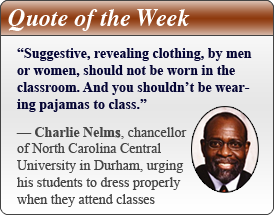
Number of Blacks Taking the ACT College Entrance Examination Soars But the Racial Gap in Test Scores Widens Once Again
 The number of 2010 African-American high school seniors who took the ACT college entrance examination rose to 215,000. This was up from 196,000 in 2009 and 139,000 in 2006. From 2006 to 2010 the number of black ACT test takers increased by nearly 59 percent. The number of 2010 African-American high school seniors who took the ACT college entrance examination rose to 215,000. This was up from 196,000 in 2009 and 139,000 in 2006. From 2006 to 2010 the number of black ACT test takers increased by nearly 59 percent.
While the number of black test takers has increased, black scores on the ACT have remained flat. For the past three years the mean black score on the test was 16.9, on a scale of 1 to 36. The mean white score on the ACT test in 2010 was 22.3. The average score for whites has increased in each of the past three years. As a result, the racial gap in ACT scores has increased.
Blacks More Than Twice as Likely as Whites to Receive Federal Pell Grants
 New data published by the U.S. Department of Education shows that 27.3 percent of all undergraduate students received a federal Pell Grant in the 2007-08 academic year. Pell Grants are reserved for students from families with low incomes. Because black families have median incomes that are about 62 percent of the median incomes of whites, it is likely to assume that a greater precentage of students from black families are eligible for Pell Grants. New data published by the U.S. Department of Education shows that 27.3 percent of all undergraduate students received a federal Pell Grant in the 2007-08 academic year. Pell Grants are reserved for students from families with low incomes. Because black families have median incomes that are about 62 percent of the median incomes of whites, it is likely to assume that a greater precentage of students from black families are eligible for Pell Grants.
This is indeed the case. The Department of Education data shows that 46.3 percent of all African-American undergraduate students receive Pell Grants. This is more than double the rate for whites. Slightly over 20 percent of white students receive Pell Grants.
Law School at Historically Black Florida A&M University Enrolls Its Largest Entering Class
The College of Law at historically black Florida A&M University enrolled 296 students in its entering class this fall. There are 233 first-year students in the full-time day program and 63 students in the part-time program that holds classes in the evening.
This is the largest first-year class in the law school’s history. The 296 students were accepted from a pool of nearly 1,900 applicants. Forty-three percent of the first-year students are white.
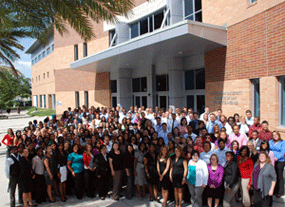
Two Historical Accounts on Race Win Lillian Smith Book Awards
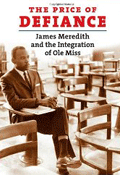 Two white history professors are the recipients of the 2010 Lillian Smith Book Awards given out by the Southern Regional Council, the University of Georgia Libraries, and the DeKalb County Public Library. Lillian Smith, author of the 1944 book Strange Fruit, was considered one of the more progressive southern writers on issues of race. The Lillian Smith Book Awards are given to authors of books who “carry on Smith’s legacy of elucidating the condition of racial and social equity and proposing a vision of justice and human understanding.” Two white history professors are the recipients of the 2010 Lillian Smith Book Awards given out by the Southern Regional Council, the University of Georgia Libraries, and the DeKalb County Public Library. Lillian Smith, author of the 1944 book Strange Fruit, was considered one of the more progressive southern writers on issues of race. The Lillian Smith Book Awards are given to authors of books who “carry on Smith’s legacy of elucidating the condition of racial and social equity and proposing a vision of justice and human understanding.”
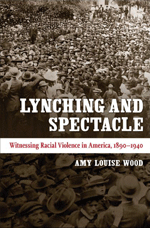 This year’s winners are Amy Louise Wood, a professor of history at Illinois State University, and Charles W. Eagles, the William F. Winter Professor of History at the University of Mississippi. Professor Wood’s award-winning book is titled Lynching and Spectacle, Witnessing Racial Violence in America, 1890-1940. (See review on page 94 of the Autumn 2009 print issue of JBHE.) Professor Eagles’ book, The Price of Defiance: James Meredith and the Integration of Ole Miss, was excerpted in the Autumn 2009 print issue of JBHE. Both books were published by the University of North Carolina Press. This year’s winners are Amy Louise Wood, a professor of history at Illinois State University, and Charles W. Eagles, the William F. Winter Professor of History at the University of Mississippi. Professor Wood’s award-winning book is titled Lynching and Spectacle, Witnessing Racial Violence in America, 1890-1940. (See review on page 94 of the Autumn 2009 print issue of JBHE.) Professor Eagles’ book, The Price of Defiance: James Meredith and the Integration of Ole Miss, was excerpted in the Autumn 2009 print issue of JBHE. Both books were published by the University of North Carolina Press.

NEW YORK UNIVERSITY

Postdoctoral and Transition Program
for Academic Diversity
The Program
New York University (NYU) is dedicated to ensuring a diverse, scholarly environment and encouraging individuals to enter the academic profession. To that end, NYU has created the NYU Postdoctoral and Transition Program for Academic Diversity Fellowship Program to attract and support promising scholars and educators from different backgrounds, races, ethnic groups, and other diverse groups whose life experience, research experience, and employment background will contribute significantly to academic excellence. Applicants with strengths in the sciences, health professions, law, and social sciences will be particularly welcome.
Eligibility
For eligibility requirements, please click here
Awards
NYU will award up to five in-residence fellowships in 2011. The two-year appointments, which begin September 2011 and end August 2013, have a possibility of a third-year extension. Fellows will teach a maximum of one course per semester, participate in school and departmental activities, and have mentorship opportunities to prepare them for an academic career.
Compensation and Allowances
Fellows will be appointed as “Assistant Professor/Faculty Fellow” and will receive a $40,000 nine-month salary; an annual housing allowance ($20,000); a research allowance ($2,000); and reimbursement for one-time relocation fees (up to $3,000). Such compensation will be subject to appropriate taxation. The University also provides a benefits package, including medical and dental coverage.
Application Procedure
For a description of required application materials and for submission instructions, please click here
All materials must be received on November 15, 2010. Applications will be reviewed as they are received. Awards will be announced on or about February 15, 2011.
New York University is an affirmative action/equal opportunity institution.
Fellowship recipients must provide proof of authorization to work in the United States. Visa sponsorship will not be considered for this Fellowship.

Appointments, Promotions, and Resignations
 • Draion M. Burch, chief resident at the College of Osteopathic Medicine at Michigan State University, was elected as the intern and resident representative to the board of trustees of the American Osteopathic Association. • Draion M. Burch, chief resident at the College of Osteopathic Medicine at Michigan State University, was elected as the intern and resident representative to the board of trustees of the American Osteopathic Association.
Dr. Burch is a graduate of Xavier University of Louisiana and the Ohio University College of Osteopathic Medicine.
 • Derek Horne was named director of athletics at Florida A&M University. He was senior associate athletics director at the University of Mississippi. • Derek Horne was named director of athletics at Florida A&M University. He was senior associate athletics director at the University of Mississippi.
Horne is a graduate of the University of Mississippi where he played varsity basketball.
 • Richard Dozier was named the founding dean of the Robert R. Taylor School of Architecture at Tuskegee University. Dozier was head of the architecture department at the university before the program was elevated to become a separate school. Dr. Dozier received his Ph.D. in architecture from the University of Michigan. • Richard Dozier was named the founding dean of the Robert R. Taylor School of Architecture at Tuskegee University. Dozier was head of the architecture department at the university before the program was elevated to become a separate school. Dr. Dozier received his Ph.D. in architecture from the University of Michigan.
• Tiffany Sanders Baffour was appointed associate professor and chair of the department of behavioral sciences and social work at Winston-Salem State University in North Carolina. She was on the faculty of the School of Social Work at the University of Maryland.
Dr. Baffour is a graduate of New Jersey City University. She holds master’s degrees from Bryn Mawr College and the University of Delaware and a doctorate in social work from Howard University.
 • Sandra B. Totten was named interim director of Title III programs at North Carolina A&T State University in Greensboro. Since 1982 she has served as the assistant Title III coordinator. • Sandra B. Totten was named interim director of Title III programs at North Carolina A&T State University in Greensboro. Since 1982 she has served as the assistant Title III coordinator.
Totten holds bachelor’s and master’s degrees from North Carolina A&T.
 • Rebecca E. Batson was appointed dean of the University Library at Delaware State University in Dover. For the past year she has served as interim dean. • Rebecca E. Batson was appointed dean of the University Library at Delaware State University in Dover. For the past year she has served as interim dean.
Dr. Batson is a graduate of Virginia State University. She holds master’s degrees from North Carolina Central University and Delaware State University and a doctorate in ministry from Friends International Christian University.
 • Roland Davis was promoted to director of the Office of Intercultural Education at Bates College in Lewiston, Maine. Since 2002 he has served as assistant dean of students. • Roland Davis was promoted to director of the Office of Intercultural Education at Bates College in Lewiston, Maine. Since 2002 he has served as assistant dean of students.
A 1992 graduate of Bates College, Davis is currently studying for an educational doctorate at the University of New Hampshire.
 • Nicole Pride was named associate vice chancellor for university relations at North Carolina A&T State University. She was vice president for development and communications for the Child Care Services Association in Chapel Hill, North Carolina. • Nicole Pride was named associate vice chancellor for university relations at North Carolina A&T State University. She was vice president for development and communications for the Child Care Services Association in Chapel Hill, North Carolina.
Pride is a graduate of North Carolina State University. She holds a master’s degree from Seton Hall University and is pursuing a Ph.D. in organizational leadership from the University of Maryland Eastern Shore.
 • Bettina Miller has been appointed director of human resources and organizational development at the University of the Virgin Islands. She was the human resources director for the Kern Community College District in Bakersfield, California. • Bettina Miller has been appointed director of human resources and organizational development at the University of the Virgin Islands. She was the human resources director for the Kern Community College District in Bakersfield, California.
She is a graduate of St. Mary’s College of California in Moraga.
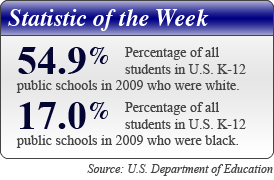
Grants and Gifts
• Historically black Hampton University in Virginia received a five-year, $322,489 grant from the U.S. Department of Education to support the university’s Leadership Academy. The university will partner with local public school districts in an effort to improve skills and provide leadership training to school administrators.
• Philander Smith College, the historically black educational institution in Little Rock, Arkansas, received a $1.2 million grant from the Kresge Foundation that will be used to establish the Center for Social Justice on campus.
• North Carolina A&T State University, the historically black educational institution in Greensboro, was awarded a $900,000 grant from the National Science Foundation to study climate change. The grant is part of a five-year, $10 million study led by researchers at the University of Minnesota.
|
 .
.